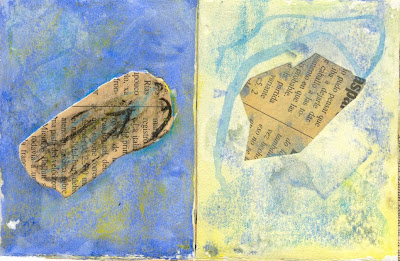Citas encontradas/De ahí:
1. LAERCIO, Diógenes. Vidas de los filósofos ilustres. Madrid: Alianza Editorial, 2008.
Dicen que lo bello es bueno (p. 370)
El bien en general es aquello de lo que proviene algún beneficio, y en particular es lo mismo y no diferente de la utilidad (p. 367)
/Enunciados encontrados en el muladar del abecedario.
2. CABANNE, Pierre. Dialogues with Marcel Duchamp. New York: Da Capo Press, 1987.
CABANNE: In short, there is in chess a gratuitous play of forms, as opposed to the play of functional forms on the canvas.
DUCHAMP: Yes. Completely. Although chess play is not so gratuitous; there is choice…
CABANNE: But not intended purpose?
DUCHAMP: No. There is no social purpose. That above all is important.
CABANNE: Chess is the ideal work of art?
DUCHAMP: That could be.
(p. 19)
CABANNE: You always stayed in the conceptual domain.
DUCHAMP: Oh! Yes, completely. It was neither common nor utilitarian.
(p. 78)
/Respuestas que significan allende la pregunta no necesaria.
3. SANOUILLET, Michel & PETERSON, Elmer (ed.). The Writings of Marcel Duchamp. New York: Da Capo Press, 2010.
SINCE THE TUBES OF PAINT USED BY THE ARTIST ARE MANUFACTURED AND READY MADE PRODUCTS WE MUST CONCLUDE THAT ALL THE PAINTINGS IN THE WORLD ARE “READYMADES AIDED” AND ALSO WORKS OF ASSEMBLAGE (p. 142)
/Aquello por lo que la cosa que no es un arte-facto: el otro coeficiente del arte.
I didn’t want to pin myself down to one little circle, and I tried at least to be as universal as I could. That is why I took up chess. Chess in itself is a hobby, is a game, everybody can play chess. But I took it very seriously and enjoyed it because I found some common points between chess and painting. Actually when you play a game of chess it is like designing something or constructing a mechanism of some kind by which you win or lose. The competitive side of it has no importance, but the thing itself is very, very plastic, and that is probably what attracted me in the game (p. 136)
/Fundíbulo. El espíritu lanzado.
But at any rate as you know, I am interested in the intellectual side, although I don’t like the word “intellect”. For me “intellect” is too dry a word, too inexpressive. I like the word “belief”. I think in general that when people say “I know”, they don’t know, they believe. I believe that art is the only form of activity in which man as man shows himself to be a true individual. Only in art is he capable of going beyond the animal state, because art is an outlet toward regions which are not ruled by time and space. To live is to believe; that’s my belief, at any rate (p. 137)
/Cuestiones monadokafkianas.







No hay comentarios:
Publicar un comentario